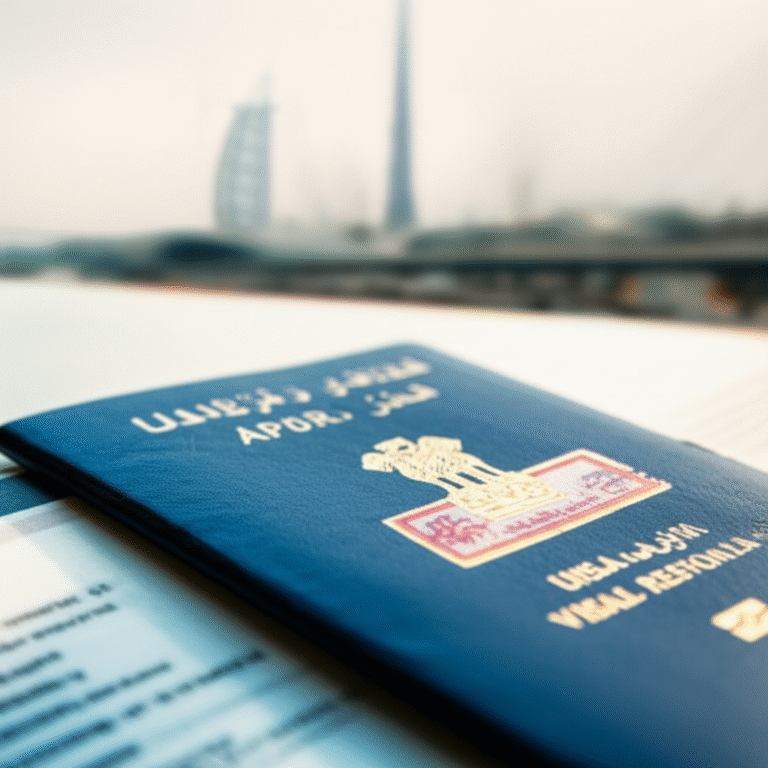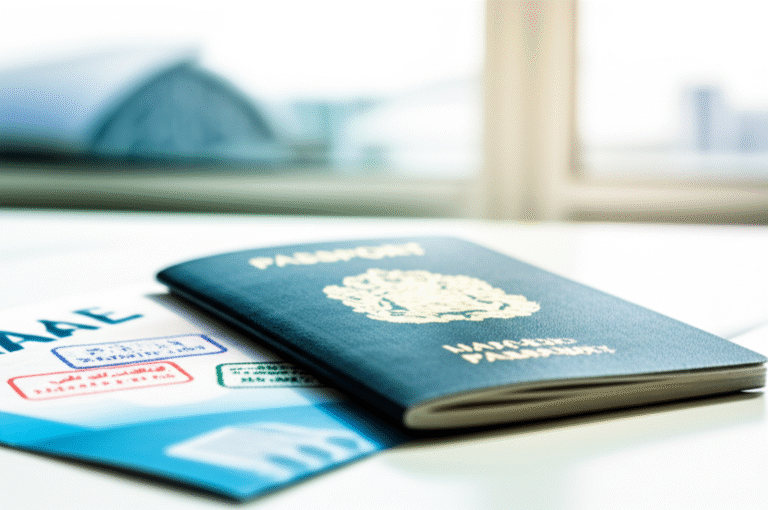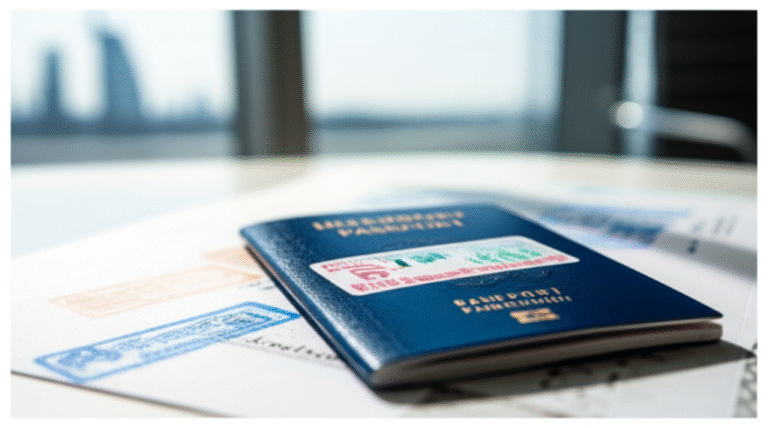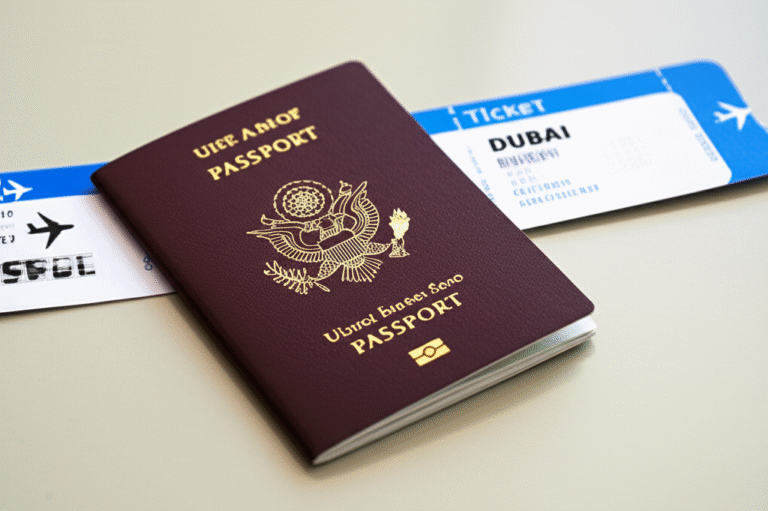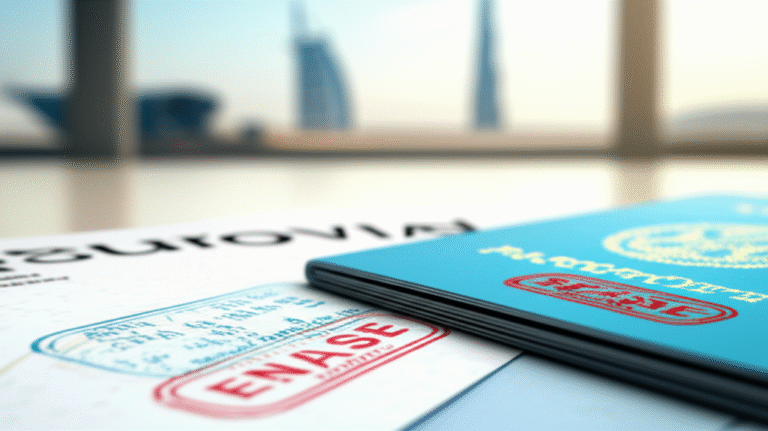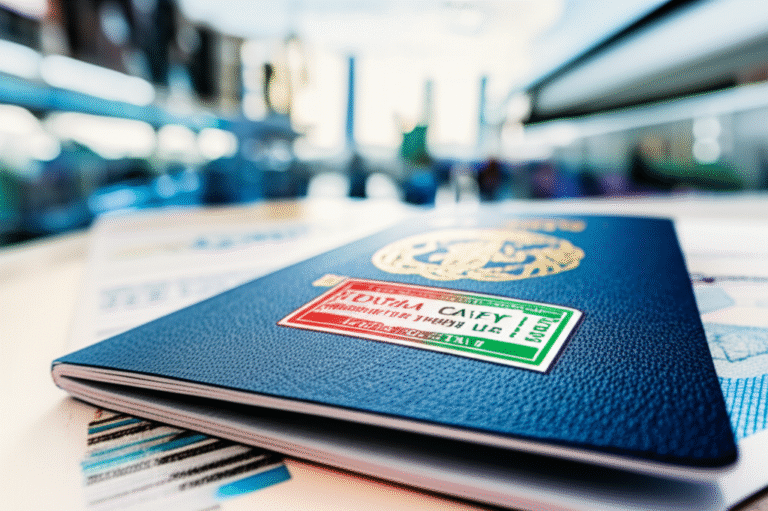How To Apply For US Visa From Dubai For Indian
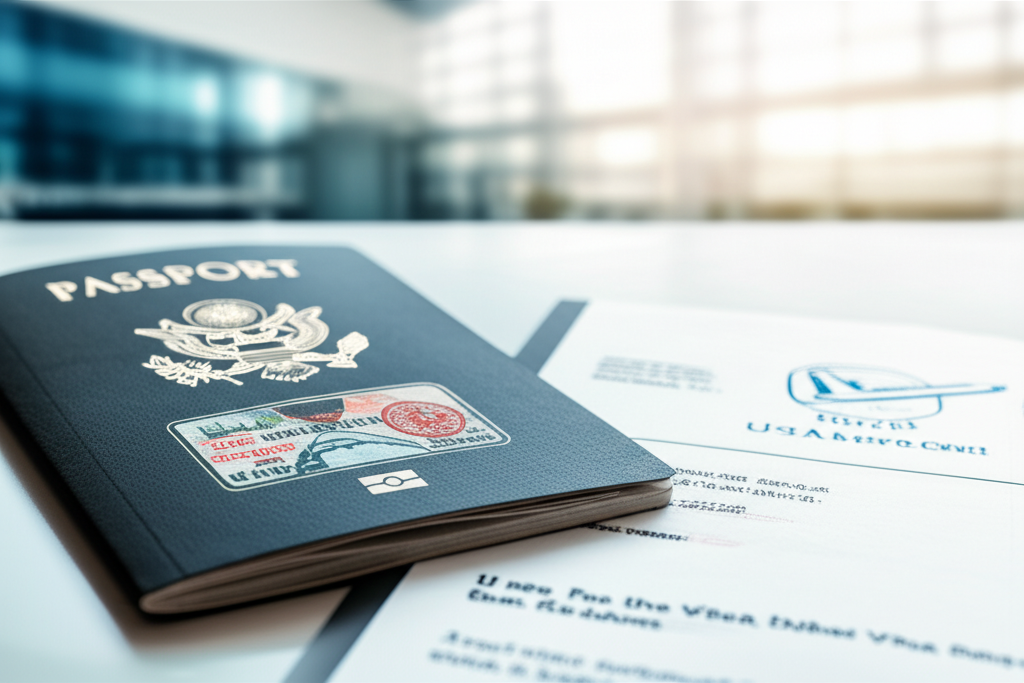
Applying for a US visa from Dubai as an Indian citizen involves a clear process. The US Consulate General in Dubai guides you through online applications, fee payments, and interview scheduling, making your journey straightforward.
Key Takeaways
- Understand visa types and eligibility.
- Complete the DS-160 online application accurately.
- Pay the MRV visa application fee.
- Schedule your US visa interview in Dubai.
- Attend your US visa interview with required documents.
- Receive your US visa approval and passport.
Moving to a new country or planning an extended visit can feel like navigating a complex map. For many Indians residing in Dubai, the dream of visiting or studying in the United States is a common aspiration. However, the process of obtaining a US visa from Dubai might seem daunting. It’s a journey that requires attention to detail and understanding the specific steps involved. This guide is designed to break down exactly how to apply for a US visa from Dubai for Indian citizens, making the process clear and manageable. We’ll walk you through each stage, from initial requirements to the final interview. Let’s begin your journey to the USA!
Understanding Your US Visa Needs
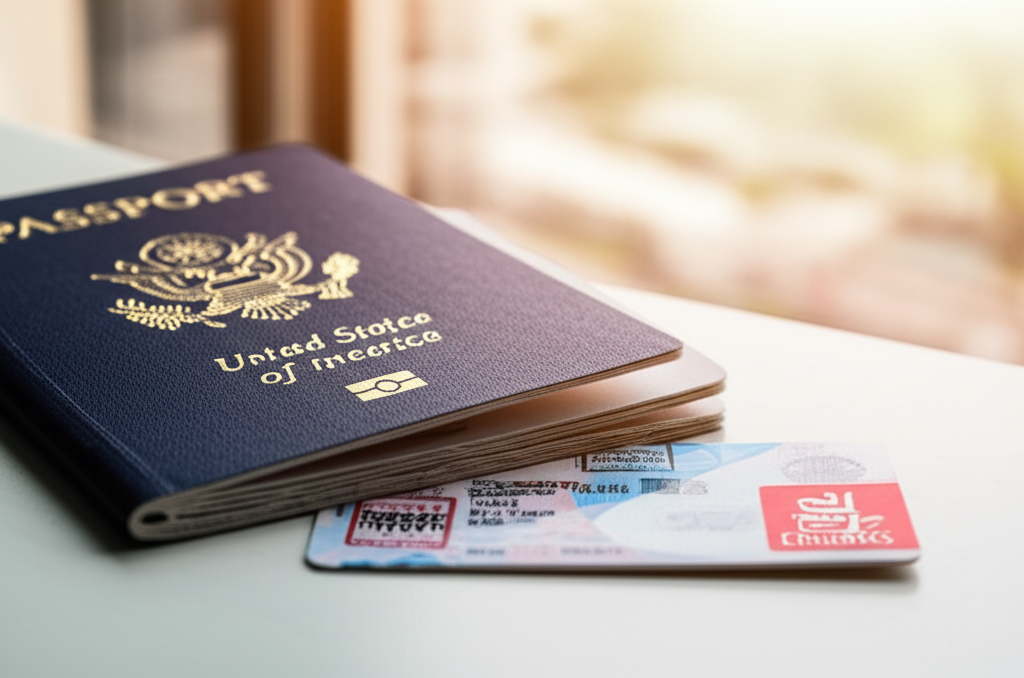
Before you start filling out forms, the most crucial step is identifying the correct US visa category that aligns with your purpose of travel. The United States offers various visa types for non-immigrants, each with specific requirements and purposes. For Indian citizens looking to apply from Dubai, understanding these categories is paramount to a successful application. This ensures you are pursuing the right visa, which can significantly streamline the process and increase your chances of approval.
Common US Visa Categories for Indian Citizens
The US Department of State categorizes non-immigrant visas based on the reason for travel. As an Indian citizen in Dubai, you will likely be applying for one of the following:
- B-1/B-2 Visa: This is the most common visa for temporary visits. The B-1 is for business purposes (e.g., attending conferences, negotiating contracts), and the B-2 is for tourism, visiting family or friends, and medical treatment. Often, these are combined into a single B-1/B-2 visa.
- F-1 Visa: For students wishing to pursue academic studies at a US educational institution. You will need an I-20 form from your approved school.
- J-1 Visa: This is for exchange visitors, which includes students, scholars, trainees, and au pairs participating in approved exchange programs.
- H-1B Visa: For individuals in specialty occupations requiring theoretical or technical expertise. This visa is employer-sponsored.
- L-1 Visa: For intracompany transferees who are employed with a company that has offices in both their home country and the US.
It’s essential to visit the official website of the U.S. Department of State Bureau of Consular Affairs to find the most up-to-date information on visa types and their specific requirements. This will help you determine which visa category best suits your intended trip to the United States.
The Application Process: Step-by-Step
Applying for a US visa from Dubai for Indian citizens follows a standardized procedure. The US Consulate General in Dubai facilitates this process, ensuring efficiency and adherence to US immigration laws. Here’s a breakdown of the essential steps:
- Complete the Online Visa Application Form (DS-160): This is the very first official step in your application.
- Create a Profile and Pay the Visa Application Fee: You’ll need to register on the US visa appointment scheduling website for the UAE.
- Schedule Your Visa Interview: Book an appointment at the US Consulate General in Dubai or the US Embassy in Abu Dhabi.
- Gather Required Documents: Prepare all necessary paperwork for your interview.
- Attend Your Visa Interview: Present yourself at the consulate/embassy on your scheduled date.
- Visa Approval and Passport Return: If approved, your passport will be returned with the visa stamp.
Step 1: Completing the DS-160 Form
The DS-160, Online Nonimmigrant Visa Application, is a detailed form that requires accurate and complete information. You must fill this out online before you can schedule an interview. It’s critical to answer all questions truthfully and to the best of your knowledge. Any discrepancies or false information can lead to visa denial.
Key information typically required on the DS-160 includes:
- Personal details (name, date of birth, nationality, passport information).
- Contact information.
- Family details.
- Travel plans (purpose of trip, intended dates, US address).
- Previous US travel history, if any.
- Information about your current employment or schooling.
Important Note: You will need a digital photograph that meets specific US visa photo requirements. Ensure your photo is recent, in color, and meets the specified dimensions and background criteria. You can find detailed guidelines on the U.S. Department of State website.
Once you submit the DS-160, you will receive a confirmation page with a barcode. Save this page, as you will need it for your interview.
Step 2: Paying the Visa Application Fee
After completing the DS-160, you must pay the Machine Readable Visa (MRV) fee. This fee is non-refundable, even if your visa application is denied. The fee amount varies depending on the visa category. You will typically need to create a profile on the official U.S. visa information service website for the UAE to proceed with payment and scheduling.
Payment methods usually include:
- Online payment through the designated portal (often debit card or similar methods).
- Cash payment at designated banks in the UAE.
Keep the payment receipt, as it will contain a reference number needed for scheduling your interview.
Step 3: Scheduling Your US Visa Interview in Dubai
With your DS-160 confirmation and MRV fee receipt in hand, you can now schedule your visa interview. You will do this through the same U.S. visa information service website where you created your profile.
When scheduling, you will typically be asked for:
- Your passport number.
- The MRV fee receipt number.
- The ten-digit barcode number from your DS-160 confirmation page.
The US operates a Visa Application Center (VAC) and the U.S. Consulate General in Dubai. In some cases, you may be directed to the U.S. Embassy in Abu Dhabi. Check the scheduling system carefully for the correct location. Wait times for interviews can vary significantly based on the visa type and the time of year, so it is advisable to book your appointment well in advance of your planned travel date.
Pro Tip: If you are applying for a student (F) or exchange visitor (J) visa, you may be eligible for an earlier interview. Check the scheduling website for these options, but ensure you have your I-20 or DS-2019 form ready.
Step 4: Gathering Required Documents
Thorough preparation of documents is critical for a smooth visa interview. While the exact list may vary slightly based on your visa type, here are the common documents Indian citizens applying from Dubai should prepare:
Mandatory Documents:
- Current Passport: Must be valid for at least six months beyond your intended period of stay in the US.
- Old Passports: Especially those containing previous US visas, if applicable.
- DS-160 Confirmation Page: With the barcode.
- Visa Fee Payment Receipt: Proof of MRV fee payment.
- Interview Appointment Letter: The confirmation of your scheduled appointment.
- One Photograph: A recent, 2×2 inch (51×51 mm) color photograph meeting US visa photo requirements, if you were unable to upload it digitally or if requested.
Supporting Documents (Category Dependent):
These documents help demonstrate your ties to India and your intentions to return after your temporary stay in the US. The consular officer will assess these to determine your eligibility.
- For B-1/B-2 (Tourism/Business):
- Proof of financial stability: Bank statements (last 6 months), salary slips, income tax returns.
- Employment letter: Stating your position, salary, length of employment, and approved leave.
- If self-employed: Business registration documents, company bank statements.
- If visiting family/friends: Invitation letter, proof of their legal status in the US.
- For business trips: Letter from your employer explaining the purpose of the visit, or a letter of invitation from a US company.
- For F-1 (Student) Visa:
- I-20 Form: Certificate of Eligibility for Nonimmigrant Student Status, issued by your US educational institution.
- SEVIS Fee Receipt: Proof of payment for the Student and Exchange Visitor Information System (SEVIS) fee.
- Academic Transcripts and Diplomas.
- Standardized Test Scores (e.g., TOEFL, IELTS, GRE, GMAT).
- Evidence of financial support.
- For J-1 (Exchange Visitor) Visa:
- DS-2019 Form: Certificate of Eligibility for Exchange Visitor Program.
- SEVIS Fee Receipt.
- Program details and sponsor information.
- For H-1B/L-1 (Work Visas):
- Copy of your approved visa petition (e.g., I-129, I-797 Notice of Action).
- Employment contract and offer letter.
- Proof of qualifications and relevant work experience.
It is crucial to organize these documents into a folder. While you might not need to submit all of them, having them readily available for the consular officer is vital.
Step 5: Attending Your US Visa Interview
The visa interview is the most critical part of the application process. It’s your opportunity to convince the consular officer that you meet the requirements for the visa you’re applying for and intend to abide by its terms.
Location: The U.S. Consulate General in Dubai is located at:
P.O. Box 9345, Sheikh Zayed Road, Dubai, United Arab Emirates.
Arrival: Arrive at the consulate no more than 15-20 minutes before your scheduled appointment. Late arrivals may be denied entry.
Security Check: Expect strict security screening similar to airport security. You will need to surrender electronic devices like mobile phones, smartwatches, and large bags. Only essential documents should be carried.
The Interview: The interview is usually brief, lasting only a few minutes. The consular officer will ask you questions about your travel plans, your background, your intentions in the US, and your ties to the UAE or India. Be polite, honest, and confident in your answers. Answer the questions asked directly and concisely.
Dress Code: Dress professionally, as if attending a job interview. This shows seriousness and respect for the process.
Common Questions:
- What is the purpose of your visit to the US?
- How long do you plan to stay?
- Who will you be meeting or visiting?
- What is your occupation in Dubai/India?
- Can you show me proof of your financial ability to cover your trip?
- What are your plans after returning from the US?
- Do you have family in the US?
The consular officer is assessing your eligibility based on U.S. immigration law, particularly section 214(b) of the Immigration and Nationality Act, which presumes all visa applicants are intending immigrants unless they can prove otherwise. Therefore, demonstrating strong ties to your home country or current country of residence (UAE in this case) is paramount.
Step 6: Visa Approval and Passport Return
After your interview, the consular officer will inform you whether your visa has been approved, denied, or requires further administrative processing.
- If Approved: You will be told that your visa is approved. You will need to leave your passport at the consulate. Your passport with the visa will be returned to you via a designated courier service or can be collected from a specified pick-up location. The processing time for passport return can vary, typically taking a few business days.
- If Denied: The consular officer will explain the reason for the denial, often citing a specific section of the law (e.g., 214(b)). You will receive your passport back immediately.
- Administrative Processing: In some cases, your application may require additional administrative processing, which can take several weeks or even months. You will be informed if this is the case.
You can track the status of your passport and visa application online through the U.S. visa information service website for the UAE.
Navigating the U.S. Visa System
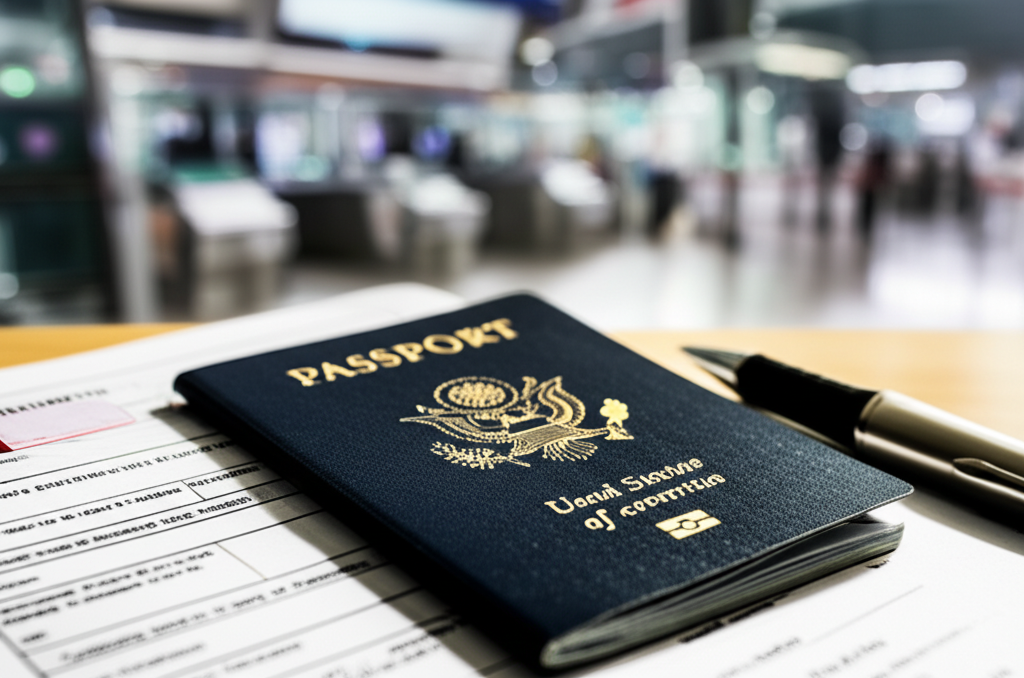
The U.S. visa system, while structured, can present unique challenges. For Indian citizens applying from Dubai, understanding where to find reliable information and how to prepare effectively is key. The U.S. Department of State and the U.S. Embassy/Consulate in Dubai are your primary sources of accurate information.
Key Resources and Official Websites
It’s vital to rely on official sources to avoid misinformation:
- U.S. Department of State – Bureau of Consular Affairs: This is the most comprehensive resource for all U.S. visa information, forms, and policies. Visit travel.state.gov.
- Website for U.S. Visas in the UAE: This official site provides specific instructions for scheduling appointments, paying fees, and finding application center locations within the UAE. Search for “U.S. Embassy & Consulates in the United Arab Emirates” to find the relevant official government portal.
- USCIS (U.S. Citizenship and Immigration Services): For information on petitions (like H-1B or L-1) and forms related to immigration. Visit uscis.gov.
Understanding Visa Rejection and Reapplication
Visa rejection can be disheartening, but it is not always the end of the road. If your visa was denied, it’s important to understand the reason. For denials under section 214(b) (failure to demonstrate non-immigrant intent), reapplying requires presenting significantly new evidence showing stronger ties to your home country or UAE that were not apparent during the previous interview.
Reasons for Denial:
- Insufficient ties to home country/UAE.
- Inability to demonstrate sufficient financial means.
- Inconsistent information provided in the application or interview.
- Previous immigration violations.
- Ineligibility due to criminal record or other factors.
If you choose to reapply, you will need to go through the entire process again, including paying the MRV fee and scheduling a new interview. Ensure you address the reasons for the previous denial in your new application and interview.
Visa Services and Support in Dubai
While you must complete the official application process yourself, several services in Dubai can offer assistance, advice, and document preparation support. These are private entities and not part of the U.S. Consulate. They can be helpful for those who feel overwhelmed by the paperwork or wish for an extra layer of guidance.
Types of Visa Assistance Services
- Document Preparation Services: These agencies help you organize your documents, fill out forms, and ensure you have everything needed for the interview. They do not guarantee visa approval.
- Visa Consultants: Offer advice on visa categories, eligibility, and interview preparation. They can be particularly helpful in understanding complex cases or specific visa types.
- Embassy/Consulate Services: The U.S. Embassy and Consulates themselves offer information desks and online resources to guide applicants. However, they cannot provide legal advice or guarantee outcomes.
When choosing a private service, always verify their credentials and reputation. Be wary of services that promise guaranteed visa approval, as this is impossible for any entity other than the U.S. government itself.
Visa Application Fees at a Glance
The MRV fee is a standard charge for processing most non-immigrant visa applications. The fee amount can change, so always check the official U.S. visa website for the most current figures. As of recent updates, here are typical fee ranges:
| Visa Type | MRV Fee (USD) | Notes |
|---|---|---|
| B-1/B-2 (Tourism, Business, Medical) | 185 | Standard fee for most visitor visas. |
| F-1 (Student) | 185 | Covers visa processing. SEVIS fee is separate. |
| J-1 (Exchange Visitor) | 185 | Covers visa processing. SEVIS fee is separate. |
| H-1B (Specialty Occupation) | 190 (for employer) + potential other fees | Petition-based visa. Fees are complex and often borne by employer. |
| L-1 (Intracompany Transferee) | 190 (for employer) + potential other fees | Petition-based visa. Fees are complex and often borne by employer. |
Note: These fees are subject to change. Always verify the exact amount on the official U.S. visa information service website for the UAE before making a payment. Some visa categories, particularly for petition-based work visas (H, L), involve additional fees payable by the sponsoring employer, which can be significantly higher.
Frequently Asked Questions (FAQ)
Q1: Can I apply for a US visa in Dubai even if I am an Indian citizen residing in Dubai on a tourist visa?
Generally, you can apply for a US visa at a US Embassy or Consulate in a country where you are legally present. If you are legally present in the UAE on a tourist visa, you may be able to apply. However, it is always best to check the specific policies of the U.S. Consulate General in Dubai or the U.S. Embassy in Abu Dhabi regarding applications from non-residents.
Q2: How long does it take to get a US visa approved after the interview?
If your visa is approved at the interview, you will typically receive your passport with the visa stamp within 7-10 business days. However, if administrative processing is required, it can take significantly longer.
Q3: Do I need to have a confirmed flight booking before applying for the US visa?
No, you do not need to have a confirmed flight booking before applying for the visa. It is advisable to wait until your visa is approved before purchasing non-refundable tickets. For the DS-160 application, you can provide estimated travel dates and a temporary US address (like your hotel or the address of the person you are visiting).
Q4: What is the difference between the U.S. Consulate General in Dubai and the Embassy in Abu Dhabi for visa applications?
Both facilities serve visa applicants. The scheduling system will direct you to the appropriate location for your interview based on operational capacity and your specific visa category. For most Indian residents in Dubai, the Dubai Consulate is usually the primary option, but it’s best to follow the instructions on the official scheduling website.
Q5: Can I apply for a US visa if I have a previous visa refusal?
Yes, you can reapply. However, you must demonstrate substantial changes in your circumstances or provide new evidence that addresses the reasons for your previous refusal. Simply reapplying without new supporting information or a change in circumstances is unlikely to result in a different outcome.
Q6: Is it mandatory to use a visa agent to apply for a US visa from Dubai?
No, using a visa agent is not mandatory. The entire application process can be completed by the applicant. While agents can offer assistance with documentation and form filling, they do not have any special influence on the visa decision. It is crucial to rely on official government websites for accurate information.
Conclusion
Navigating the process of how to apply for a US visa from Dubai for Indian citizens requires diligence and adherence to official procedures. By understanding the visa types, meticulously completing the DS-160 form, paying the required fees, and diligently preparing for your interview, you can significantly enhance your chances of a successful application. Remember to always consult the official U.S. Department of State and U.S. Embassy/Consulate websites for the most current and accurate information. Dubai, as a global hub, offers a convenient base for many Indian nationals to apply for their U.S. visas, and by following these steps, you can make your journey to the United States a reality.

